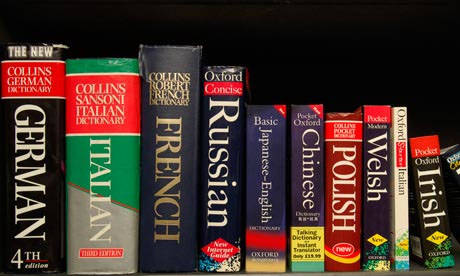Joyeux mardi. The general consensus has always been that in order to learn a foreign language, it is necessary to live for an extended period of time somewhere that the language is spoken every day. Just having a Francophone partner, so say the nay-sayers, is not enough, because the learner will simply not be thrown into enough realistic situations. Going into a patisserie in Lyon is a different experience from chatting with your partner about what she did today. Who am I to argue with the language big-shots?
Well, I'm Guillaume, that's who, and I question everything. Oh, alright, I know I'm getting my feathers ruffled again and need to have another cup of coffee, but I take take issue with a learning philosophy that is not available to Francophiles who don't have the financial resources to to travel to France, Quebec, or Africa-- either when they were students or now. I most definitely fall into that category. Yes, I won't argue that immersing oneself in French culture, society, and politics, as well as everyday spontaneous conversation with French-speakers is surely one of the fastest and most efficacious ways to learn French, but the question is still: Are there valid alternatives?
Before the arrival of the Internet, I'd probably would have said no--or at least not likely. Before the World Wide Web made its triumphant entry into our lives, the only way to expose oneself to regular foreign language conversation was by listening to recorded dialogue. Though this method did help you learn correct pronunciation and through daily listening and repetition eventually assisted in acquiring a working vocabulary and confidence in speaking the language, there was very little opportunity to interact. Now, you can get on the 'Net and find French dialogues with audio and video capabilities that give the feel of actually being engaged in a conversation. Some have speech recognition through which you can check your pronunciation. There are also interactive DVDs that also provide many of these features. We've come a long way since language lab tapes.
And there are other venues also: French 'chat rooms,' pen-pals, private tutors, etc. The latter is a choice that again requires
beaucoup d'argent, but I'm saving my
monnaie to hire one down the line. [by the way, if anyone finds mistakes in the French I use on this blog, don't be shy about correcting me (but, on the other hand, don't be
méchant. I'm sensitive. :)]
Looking back (ah, if I only had a euro for every time I've said that), it's clear that when I was a young French major at the University of Mississippi, I should have been more resourceful and dedicated. I should have spent more time in the language lab than with my head in books, and I should have sought a private tutor--there were French exchange students who would have probably offered this service either for free or for practically nothing. Yet, there are always second chances, or third ones. My new motto is 'Paris or bust.'
À la prochaine.




